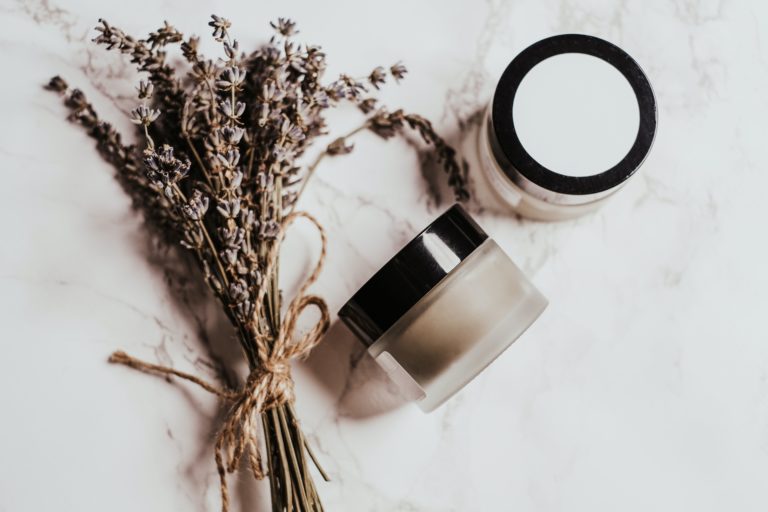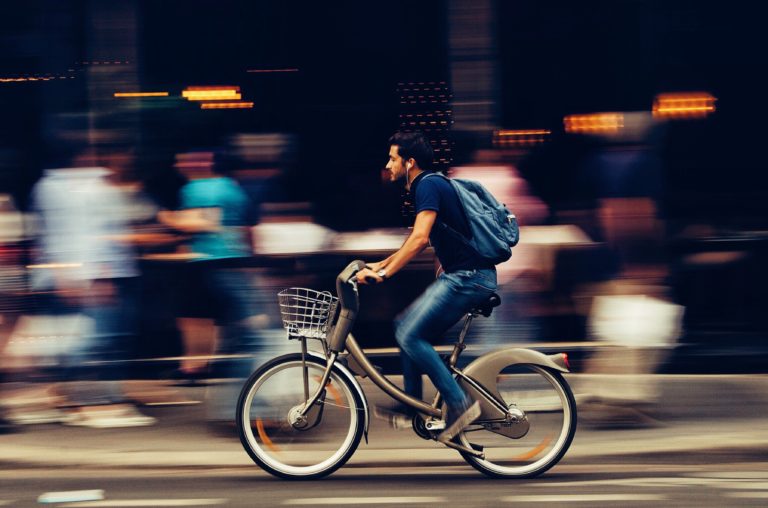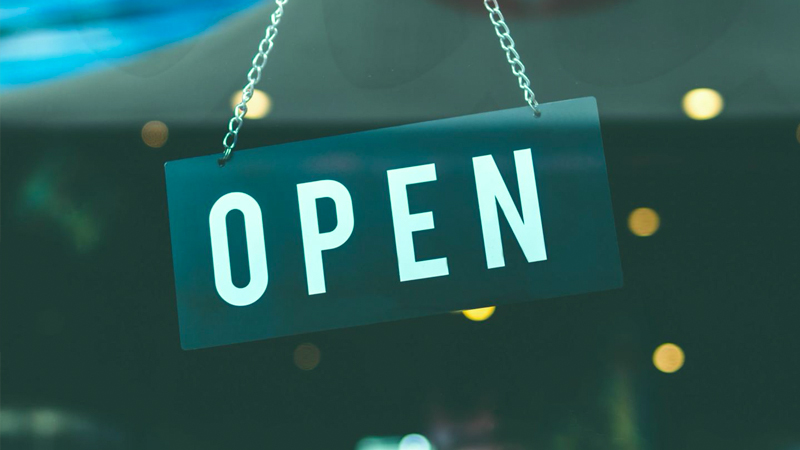A year into the pandemic, the UK is on a roadmap to a full recovery, and so in this blog, we will be looking at the top three industries poised to thrive or continue to thrive in the aftermath of the outbreak.
We will analyse the key trends shaping each industry and offer expert recommendations as to how brands should best respond to them in their digital marketing efforts.
Post-Pandemic Winners
Natural Beauty & Self-Care Cosmetics
While the beauty market as a whole saw a significant value decline in 2020 largely due to limited retail sales, sectors promoting well-being and self-care such as skincare has been growing since the start of the outbreak.
As a result, the demand for clean, natural products is only expected to accelerate throughout the COVID recovery period and beyond.
Key Trends in The Beauty And Personal Care Industry
- Clean beauty will evolve: According to Google Trends, searches for ‘sensitive skin’ has seen a sharp increase since the COVID-19 outbreak. And with ‘clean’ becoming more closely connected to health, consumers will look towards clean beauty products to promote the health of their skin and hair. Therefore, products that are both free from parabens and claim to be natural are likely to have the greatest appeal in 2021 and beyond. To best respond to this trend, beauty brands will need to adopt a multi-channel advertising approach and focus on original content that communicates self-care and wellness messages to the consumers.
- Expertise will be more important than ever: With scientists at the forefront of the fight against COVID-19, their knowledge and expertise will continue to be sought after in the long-term. Similarly, the beauty market consumers will expect to hear from the experts in the industry. This means that beauty brands will scientific credentials are likely to be favoured by consumers. Therefore, brands should look to bring their Research & Development teams and scientists to the forefront of marketing campaigns, to drive true expertise and win customers’ trust. With that said, influencer marketing will be especially relevant for the cosmetics industry where consumers heavily rely on social media to purchase products online.
- Eco-concerns will be heightened: With sustainability gaining more attention as a result of the coronavirus outbreak, beauty & personal care brands will need to work harder to convince consumers of their eco-friendly credentials.
The UK’s leading distributor of natural skincare products sees amazing post-migration gains
This health & beauty client came to Boyd Digital looking for help with their site migration.
We not only managed to successfully migrate their site but also contribute to an amazing post-migration growth:
> 444% increase in organic site traffic YoY
> 596% increase in organic revenue YoY

Staycations
The UK government’s recent announcement to allow domestic holidays in self-contained accommodation from 12 April 2021, has triggered more people to book holidays in what is expected to be the biggest staycation boom in the last 10 years.
While some consumers’ finances have been hit due to the crisis, limited travel options and closed leisure facilities have helped others save money and, following a tough year, travellers will want to treat themselves.
So, what does this means for the future of the UK travel market?
Key Trends in The UK’s Domestic Travel Market:
- Premium & luxury accommodation is likely to be in high demand: 41% of those planning to take a holiday in 2021 say their savings have increased since the start of the COVID-19 outbreak. Having in mind that the majority (68%) of travellers with increased existing savings fall within the higher socio-economic groups, we can expect a growth in the luxury travel market (as reported by Mintel).
UK Luxury Hotel Group achieves astonishing results with SEO
This is a hugely popular 4 & 5-star chain with lavish hotels and luxury log cabins based in Scotland & England. This client came to Boyd Digital seeking to increase targeted traffic to their website, sales and revenue.
To do this, we created an SEO campaign with two segments – one for the hotels and one for the luxury log cabins. The results of both campaigns astounded our client:
> Traffic to the lodge’s site increased 166% YOY compared to the month we started the campaign.
> Traffic to the hotel’s site increased 33% YOY, an additional 49K visitors per month. Revenue increased 28% YOY, an additional £96K per month.
- Holiday duration will increase: Those who have been unaffected financially or have even managed to boost their savings as a result of reduced outgoings will want to make the most of their holidays following a prolonged period with limited options to travel. Subsequently, we can expect to see travellers opting for longer holidays. This trend is likely to be further accelerated by potential measures, such as testing. Brands can help encourage this behaviour by highlighting the benefits for the environment when people travel less often but stay longer.
- Holidaymakers will prefer less popular and quieter destinations: The pandemic has raised awareness of the risks associated with over-crowding in popular tourist destinations, meaning that UK travellers will be looking for less crowded places. As a result, there is likely to be an increased demand for rural and coastal breaks, self-catering accommodation and self-drive holidays, including caravan accommodation and campervan purchases/rentals. Also, a growing taste for adventure and escape from crowds can drive demand for outdoor activities such as hikes, cycle tours, and visits to local farms. This opens up an opportunity for brands to offer people to search for quieter locations as they plan their holidays as well as for holidays that combine travel with outdoor activities.
- Price will likely remain the dominant factor in driving booking decisions over the coming years. Ease of booking, previous experience of the company and financial protection will also play a key role when travellers decide which company to book a holiday with.

Cycling
The coronavirus pandemic has led millions of people to turn to bicycles as a safe and socially distanced way to get out of their homes, exercise and get some fresh air.
While the bicycle industry was already thriving before the pandemic, a sharpened appetite for sustainability amidst the outbreak at local, national and global levels, has helped to accelerate this industry even further. Data from Sport England and Mintel suggests that around a million extra adults have taken to the saddle during the pandemic, whilst Sport England also points to a huge 57% rise in the number of children cycling in summer 2020 compared with the previous year.
But what will that mean for the future of bicycles?
- Upcycling opportunity: Mintel’s data shows that 23% of those who bought a bike in the past 12 months used second-hand sellers, a 6% rise from the previous year. Given that the sudden rise in demand for bicycles came at a time when suppliers were struggling with supply chain problems, it is no surprise that consumers went to second-hand retailers. And with supply issues likely to continue in 2021, this opens up an opportunity for local bike shops to move to the second-hand market, enhancing and repurposing existing bikes.
- Security products will be in demand: Mintel’s data shows that 24% of all UK cyclists and 44% of all first-time bike owners purchased bike locks in the past 12 months. This trend has generated opportunities for offering security products, including bike insurance policies, bike locks, and app-based locking technology.
- Health & Wellness will be a key driver of consumer behaviour in the coming years: The closure of gyms for much of the past 12 months has also attracted a new type of customer looking for in-home and online exercise alternatives. With this in mind, Mintel predicts that smart cycling trainers will appeal to the post-pandemic fitness consumer. This, in turn, will offer an opportunity for brands and local bike shops to engage their consumers online with virtual events.

Laying The Foundations For Recovery
According to new data from IBM’s U.S. Retail Index, the pandemic has accelerated the shift away from physical stores to digital shopping by roughly five years.
With e-commerce growing rapidly, we can expect the majority of marketing to move into the digital realm soon where companies can reach an enormous audience cost-effectively and measurably.
So, to survive and thrive in a post-COVID-19 environment, companies will need to implement long-term digital marketing strategies that allow them to capture opportunities and shape their post-pandemic futures.
So, how can brands harness the power of digital marketing in the ‘new normal’ post-pandemic environment?
SEO
As consumers shift their buying activity towards online options, brands would want to have a strong organic presence to be found by consumers.
Research shows that 75% of Internet users will never scroll past the first page on a Google search. That means the higher your site ranks in relevant searches, the more likely customers are to choose your business over lower-ranking competitors.
For brands to rank high for competitive keywords, however, they would need to attract potential customers with well-optimised, engaging content that answers their questions and creates value while also ensuring an excellent user experience.
This will help brands stay on top of search engine results and never miss a business opportunity during a time when their industry is thriving.
PPC
PPC is one of the most cost-effective and measurable forms of advertising for any business. It provides brands with immediate visibility in the search results (PPC ads can put you on the first page for a given search term within a day) right when potential buyers are looking to make a purchase; boosting companies’ chances of securing conversions and sales.
Therefore, it’s a good idea for brands to use PPC advertising to complement their organic strategy, creating ads for important terms on Google where they might otherwise struggle to rank.
Social Media Marketing
With social media being such an indispensable component in our daily life, this presents a unique opportunity for brands to use social media marketing to connect and bond with customers in meaningful ways.
This can be especially relevant to the cosmetics industry where consumers heavily rely on social media to purchase products online.
For example, brands can use social media as a platform to deliver helpful messages and engage in valuable conversations with their audience, which would undoubtedly allow them to come out of the crisis much stronger.
How Can Boyd Digital Help?
Post-pandemic reopenings mark the long road ahead for brands wanting to gain consumers’ trust and loyalty back. Building momentum early through effective digital marketing strategies is what will make the difference between failure and success.
With over 12 years of experience across a wide variety of industries, including health & beauty and tourism, we’re well-versed in creating performant digital marketing campaigns that deliver tangible results.
Get in touch, if you’d like to know how we can help you transform post-COVID-19 market developments into profitable opportunities.

